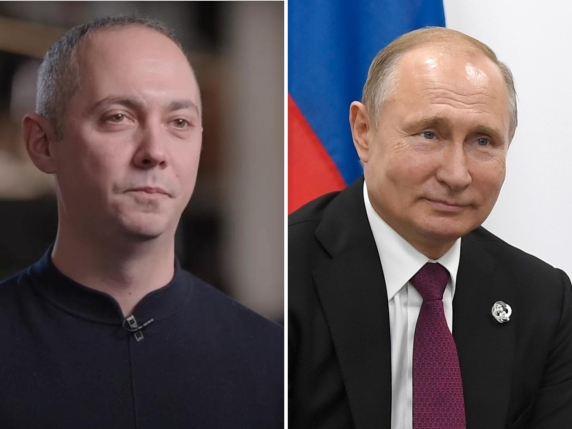Russian analyst: The model for this conflict is that of the Great War. It's now clear that an agreement won't satisfy Kiev.

Alexander Gabuev has been director of the Carnegie Eurasia Center since the think tank moved from Moscow to Berlin at the beginning of the all-out aggression against Ukraine.
Many years ago, Gabuev was part of Dmitry Medvedev's staff, when the latter seemed like a young, reformist president. For months, however, Russia has filed an international arrest warrant with Interpol, which has not prevented him from publishing some key essays in Foreign Affairs and elsewhere.
What do you expect from today's summit between Donald Trump and Vladimir Putin?
Reading and dealing with Trump is difficult, but if we step back and look at the underlying trends, we see three factors that are working in Putin's favor in the short term.
What is the first factor?
Ukraine is losing this war in slow motion. It is not on an outright defeat trajectory, and there are ways to reverse the course of the conflict. Yet it is now clear that not only will Volodymyr Zelensky not win outright, restoring the 1991 borders, but the terms of an agreement freezing the war will likely not be satisfactory for Ukraine.
What factors are driving this situation?
For now, Ukraine is unable to solve the problem of the shortage of men at the front. Many are withdrawing. The government has amended the law on recruitment, establishing that if a soldier runs away from his unit for the first time, he is no longer committing a criminal offense. But society's trust in the mobilization system is undermined. On the other hand, at least for now, Russia manages to mobilize around 30,000 men a month. This is a destruction and waste of human lives of historic proportions. The authorities throw human bodies into the meat grinder in an attempt to solve the problem, but they don't stop.
Isn't Russian recruitment struggling?
This is why the Kremlin is conducting experiments with electronic mobilization. You receive a message on your phone, and even if you don't open it, you're recruited. And this is why the authorities are also expanding digital bans and tools of repression. If a police officer stops you on the street and finds traces of searches on your phone for politically undesirable names or websites, this becomes a crime. The Kremlin is looking ahead: it is already taking measures for a phase in which war could become much more unpopular in society.
What other advantages do you see for Moscow on the front line?
Ukraine has long had an advantage in the quantity and quality of drones. Now Russia is rapidly catching up. And Kiev's army continues to have problems not only with infantry, but also with a shortage of artillery fire. So the Russians continue to practice terror across the entire front line. Unfortunately, the current trajectory of the conflict is pointing to the model of the Great War: stalemate, until one side can no longer take action.
Can't the Europeans increase aid to Ukraine?
Yes, but they no longer have much they can willingly give. There are no secret stockpiles of drones or projectiles in Germany or elsewhere. Moreover, some governments are also wondering whether it's worth weakening their own security. Border countries like Poland or Finland could start holding back some defense resources. They want to be sure they have them, should they be needed.
Isn't the European defense industry accelerating?
Yes, of course, it's growing a lot. But it takes time. That's why the next 12 months will be the most dangerous phase.
Don't you think the Russian economy is showing clear signs of trouble?
Of course. Dark clouds are gathering over the Russian economy. Just look at the pressure from the military-industrial complex on the Central Bank. Western sanctions are having an impact on inflation and degrading the technological apparatus. Iskander missiles are no longer as accurate as before, due to the lack of certain sophisticated semiconductors. The public budget situation is worsening, but Putin still has fat around the bone: he can stop maintaining the road network, spending on education, healthcare, or the Moscow subway, to prioritize the army and the military-industrial apparatus.

